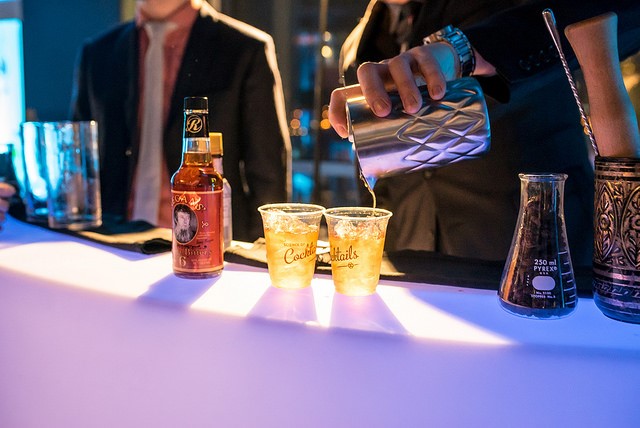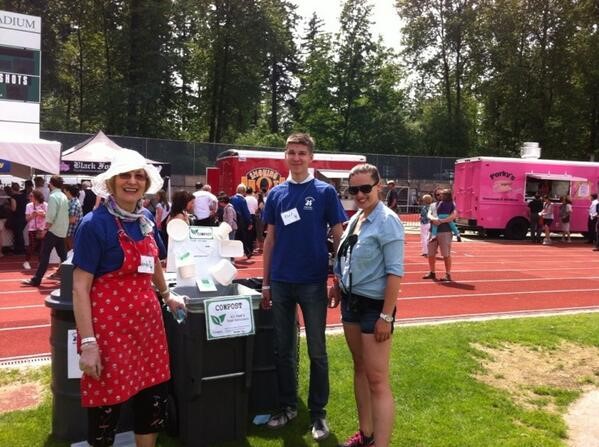From touchdown to trash talk – compostable food ware is a ‘must have’ for consumers today
February 5, 2016
What Can Compostables Do? Workshop @ COOL2016 Expo April 18
April 6, 20163 Easy Questions for AWESOME Sustainable Events
If you are planning an event, reducing your impact on the environment is not only recommended, it’s expected. Keeping up with sustainable trends can be tough! We know the right path to your reduced impact isn’t always clear.
There are many considerations when planning a sustainable event. If you’re serving food, the biggest impact you need to consider is the waste generated from food and beverage service.

Incorporating sustainability into your event plan early on will allow you to focus engaging your guests rather than the garbage.
Here are 3 questions to guide your “zero waste” food service planning.
What story do your branded materials tell?
Everything you provide your guests is an opportunity to support your brand.
Building sustainability into your giveaways is simple. Take some extra time to consider what those branded materials are. How do they provide value to you and your guests? Do they have a clear end of life solution?
Just like that, you are building the circular economy into your event!
From the beer cups to the swag, tell your guests you care about the environment in each and every action. Looking for sustainable swag? Ask our friends at Fairware.
1. Who are your partners and how do they support your sustainability goals?
Working towards sustainability means talking across departments and engaging in collaborative partnerships to achieve your waste diversion goals. You will end up in conversations with all kinds of people and organizations.
A great example of collaboration is the Vancity “Zero Waste” approach – they have engaged community partnerships from source to end-of-life:
- BSIbio – Materials & products supplier
- GreenChair Recycling – Materials sorting expert
- Recycling Alternative – Materials recovery expert
These community partnerships are all specialists in what they do. Send them your questions and they’ll be happy to work with you on your sustainable events planning.
The Vancouver Folk Fest were one of the first festivals to achieve their waste reduction targets. They have done this through partnerships, as well as volunteer and guest engagement. Check out the Folk Fest – Sustainability video from Black Rhino Creative on Vimeo to learn more!
2. What have you learned and how are you improving?
Sustainability is a way of thinking, not just a way of operating. Your journey in creating a sustainable event will connect you to community and solutions that will elevate your brand.
You don’t need to be a sustainability expert to run a sustainable event, but you should have a good grasp on terminology. Most importantly, know when you need to engage the services of an expert. Check out our blog on “biodegradable” vs. “compostable” as an example of correct “zero waste” terminology.
Measuring how the event went is key. You may not get to 100% waste diversion in your first year, but you will need to know where you’re at and where the gaps were to improve. Eurofest will be aiming for “zero waste” for the third year in a row!
3. What are your takeaways for the next event?
Do your guests, vendors and waste haulers have feedback for you? Your partnerships provide valuable insight that could be the key to unlocking your sustainable future.

Connect with us to find out more about how to hold sustainable events!
Call 604-630-5115 or Email us via admin@bsibio.com.
